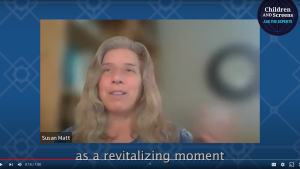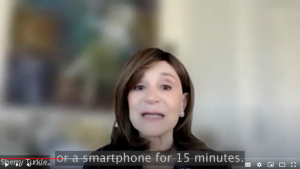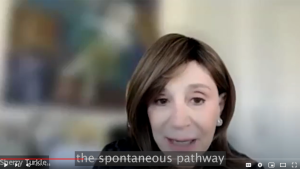
Susan Matt, PhD (Presidential Distinguished Professor of History, Weber State University), reviews historical changes in perceptions of empty time – from a more positive to a negative state – at #AskTheExperts webinar “ On Boredom: Screen Time, Free Time, and Child Development” on May 10, 2023.
[Dr. Susan Matt]: . I think that’s one of the kind of consolations that history offers us, is that it allows us to see how other generations considered empty time. And often people talked about empty time as opportunity for solitude. And solitude they saw as a revitalizing moment with yourself, to refresh yourself, renew yourself before rejoining society. So and there are other words they used as well, whether it was “repose” or “rest,” or sometimes just “empty moments.” But it need not have a negative connotation. It’s only really in the last, oh, certainly over the course of the last 20th century that it’s become this – this negative state. And so we can remember that other generations dealt with similar – similar situations, but didn’t always entrope them so negatively. That may help us.
View the full webinar

On Boredom: Screen Time, Free Time, and Child Development
What *is* boredom exactly and what role does it play in cognition and development?
Andreas Elpidorou, PhD
Professor of Philosophy; Director of the Liberal Studies Program
James Danckert, PhD
Professor of Cognitive Neuroscience; Cognitive Neuroscience Research Area Head
Susan Matt, PhD
Presidential Distinguished Professor of History
Natalie Spencer Gwyn, PhD
Core Faculty
Caley Arzamarski, PhD, NCSP
Psychologist; Clinical Assistant Professor, Child & Adolescent Psychiatry




